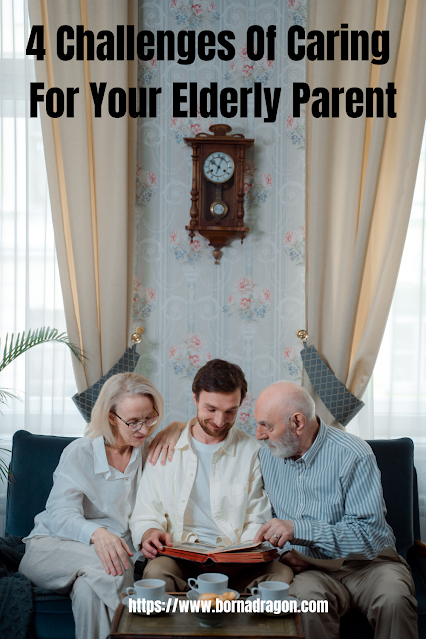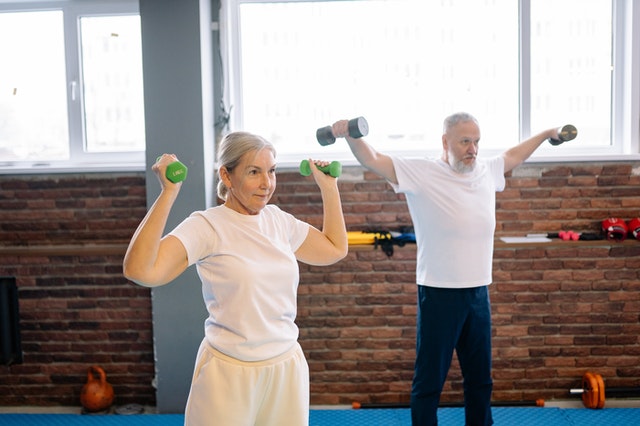If your parents are the centre of your world, it’s only natural that when they’re ageing and need a little extra help that you’d invite them to live with you. Not only do you get to make sure that they are safe, well fed and have the right medications, but it gives you that chance to spend quality time with them in the later years of their life. However, there are things you need to learn or understand before doing this, so let’s take a look at some things you need to know before having an ageing parent move in with you.
Understand their needs
The first thing you need to do is take the time to understand what their needs will be if they move in with you. This will include any medical conditions, dietary restrictions and also any personal preferences they may have. You need to start by having an open and honest conversation about all of the above. You may even want to attend some Doctors appointments to get a better grasp on the care they need and also any medications they may have. Doing this will help you make any adjustments at home to make sure everyone involved is comfortable and happy.
Create a safe living environment
Making your home as safe as possible should be a top priority when a parent moves in. Take a look around your home for any potential hazards and make the changes as soon as possible. This might be by making sure there’s no tripping hazards like trailing cords or rugs they could trip over, and it might even mean installing grab bars in your bathroom to help them stay stable when bathing. You may even need to consider changing the flow of your home to help accommodate them. For example, if your parent struggles getting up and down the stairs, you may need to sacrifice a room downstairs to give them a bedroom without worrying about trips or falls.
Know what to do in an emergency
While your main goal here is to prevent and minimise falls or injuries, it’s also important to know what to do if something does happen. Would you know what to do if you walked in to see your parent unconscious or not breathing? Getting CPR and basic first aid training is always a good idea. Is the national cpr foundation accredited, yes. Many people make the mistake of not getting the right skills taught to them before it’s too late. So, do it sooner rather than later so that if your parent does have an accident, you’ll know exactly what to do.
Acknowledge their privacy and independence
Even though they are moving in with you, they still need their privacy. While they may need a hand with a few daily tasks, it’s important to give them privacy and allow them to have as much independence as possible. This might mean giving them a space to relax and do what they want rather than having to participate in your family’s ritual. While they may do that from time to time, having that space apart will be beneficial to everyone involved.
Discuss financial matters
It’s a difficult conversation, but it’s important to have a conversation about financial matters. This should involve talking about who is paying for any home moderations, and any contributions they’ll be making towards bills and daily living costs. Even if you’re planning on fronting the cost yourself, they may also want to contribute, and it’s important to let them as it can affect their emotional well-being. If you’re struggling with this conversation as you don’t want to let money come between you, consider using a financial advisor to help you all understand the tax implications, the costs of healthcare and any benefits you could get for extra assistance.
Have the legal and health care conversation
Another difficult conversation, but again another important one too. Taking the time to sit and have an open conversation about their wishes when it comes to their medical care, setting up a power of attorney and also their living will means that they can live out their later years in a way that they are comfortable and happy with. Make sure you listen to their wishes, and provide them with helpful feedback so that everyone is happy with the arrangement.
Communicate openly as a mixed household
Bringing a parent to live with you will mean a lot of changes for your current household. If you have children, it’s important to sit down as a mixed household and talk about the changes that are going to happen. This might mean making sure everyone has their own space for privacy, or it might mean making time each week to catch up as a family and talk about anything that might be disrupting the peace. It’s important that everyone is on board and open to being dynamic as this shift happens in your household.
Provide them with emotional support
Ageing can be difficult as it can come with feelings like loss of independence, frustration, or even loss. It’s important to be an active listener and empathize with these feelings. Provide your parent with solutions that can help eliminate these feelings. For example, if they feel frustrated because they feel like they’re a burden, assign them with a household chore to make them needed within the household. Or, if they’re feeling lonely, help them find community groups and sessions to attend to make new friends and pursue new hobbies.
Find a way to integrate daily routines
As briefly mentioned above, it’s important to make your parent feel needed within the household. While you may already have all household chores covered by yourself or your children, integrating your parent into your daily routines while respecting their abilities will help them feel included and a valued member of the household. It also could involve including them in family outings, vacations and activities as long as they are comfortable and capable to do so. Once your daily routines are in sync, you’ll find the atmosphere a much happier place to be.
Get help from the community
While you want to help your parent as much as possible, if you have other commitments like children and a job to keep steady then you may need some help from time to time. Their Doctor may be able to help with this, but you can also reach out to the local community. There may be adult day care centres, transport services to help prevent isolation when you’re away, and also other home aides you could use to keep them happy and healthy. Look at what your local community offers and take advantage of it!
Understand the end of life process
Finally, it’s important to educate yourself about the end of life process. While they might just need a little bit of assistance now, you need to understand the stages of ageing and when their health is declining. You may have been fully prepared to have your parent live with you until the end - and that’s absolutely fine! But, you will need to discuss their preferences with them too. Talk to them about what they would like to do and where they’d like to be when the time comes. It’s not an easy conversation, but it’s an important one when it comes to giving your parent the best end of life care possible.
You’re doing an amazing thing by providing care for your ageing parent, but make sure you make the changes needed so that everyone in your household is happy, healthy and comfortable.




.png)

































